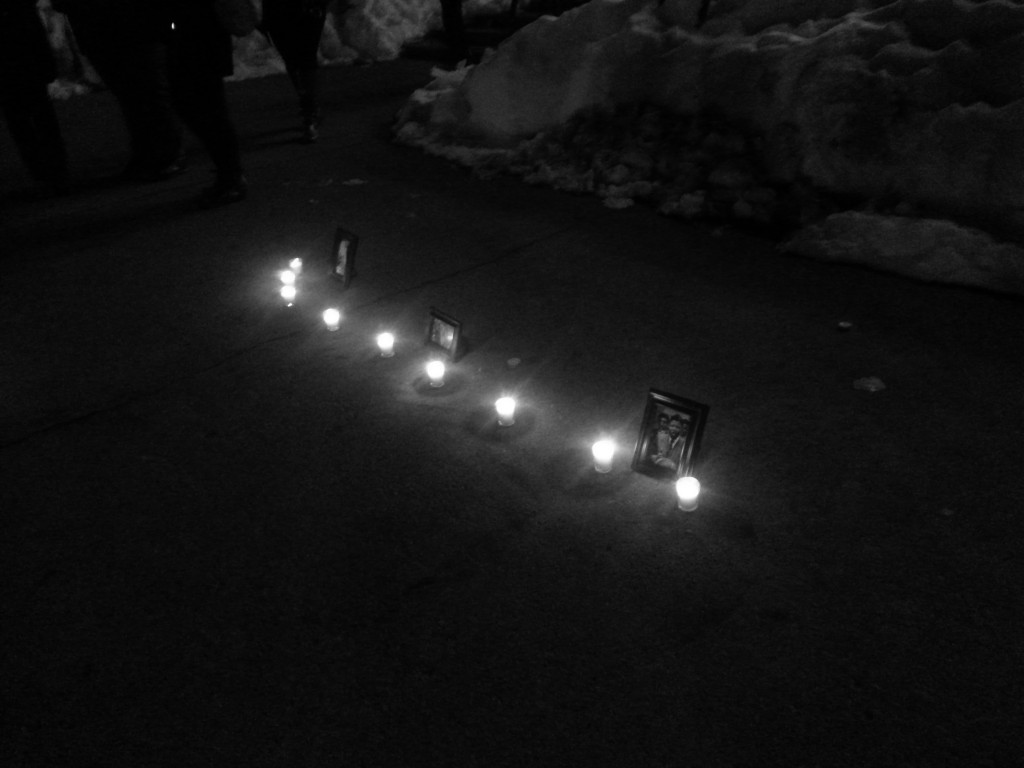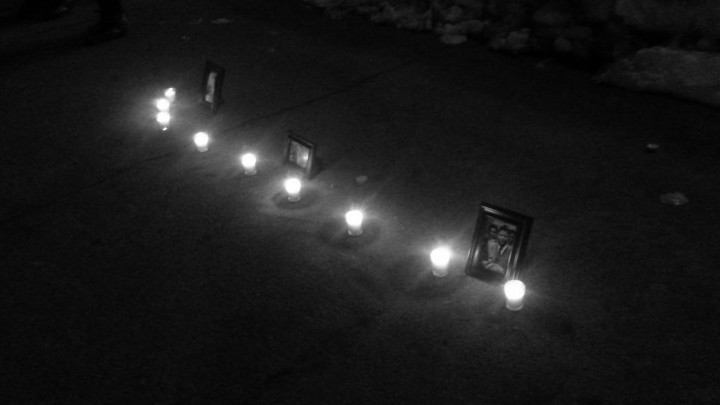

Photo Credit / Patrick McGee
BY PATRICK MCGEE
SC Contributing Writer
On Tuesday, February 11 there was a candlelight vigil held for Nelson Mandela in front of Stroud Hall to commemorate the day that he was released from a 27 year long prison sentence.
As candles were lit there was a chorus of freedom songs, followed shortly after with a moment of silence for Mandela and what he stood for.
This vigil was meant to commemorate not only Nelson Mandela, but also what he stood for, which was equal rights for everyone.
On June 11, 1964, Mandela was sentenced to life imprisonment in Robbins Island after being on trial for sabotage.
Whilst in prison his mother died in 1968, and his oldest son in 1969, and he was not allowed to attend either of their funerals.
He was taken to a hospital on August 12, 1988, after being diagnosed with tuberculosis.
After a three-month hospital stay he was moved to a house at Victor Verster Prison where he spent 14 more months of imprisonment before being released on February 11, 1990, after the unbanning of the ANC and the PAC.
Having engaged himself in talks to end white minority rule, in 1991 he was elected ANC president, replacing an ill friend.
In May 1994 he was inaugurated as South Africa’s first democratic president, which he stepped down from after his first-term of presidency.
After serving his presidential term, he continued to work through the Nelson Mandela Children’s fund, the Nelson Mandela Foundation and the Mandela Rhodes Foundation.
Nelson Mandela died in his home on December 5, 2013.
In the words of Mandela, “I have fought against white domination, and I have fought against black domination. I have cherished the ideal of a democratic and free society in which all persons live together in harmony and with equal opportunities. It is an ideal which I hope to live for and to achieve. But if needs be, it is an ideal for which I am prepared to die.”
Email Patrick at:
pmcgee@live.esu.edu

